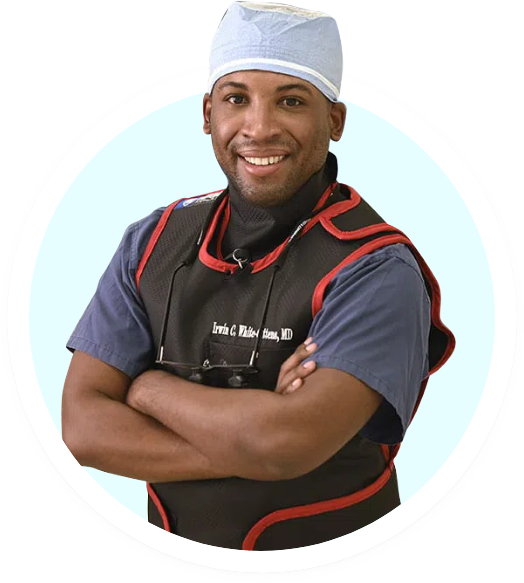Since graduating with a Doctor of Medicine from St. George’s University School of Medicine in 2019, Dr. Sotonye Campbell has carved a path marked by purpose, adaptability, and a deep commitment to holistic patient care. Born and raised in Nigeria, she moved to the UK at the age of 16 and today serves as a General Practice Specialty Trainee (GPST3) at Mersey and West Lancashire Teaching Hospitals in England.
Her decision to pursue medicine was shaped early in life by her own experiences as a patient. During her childhood, she faced several serious health challenges, including malaria, pneumonia, and surgery for a small bowel obstruction. These experiences inspired her with a deep desire to one day stand on the other side of the hospital bed.
“I still remember the surgeon checking on me after my small bowel obstruction surgery and telling the nurse I could start taking fluids again. It was such a simple moment, but it hit me how much of an impact he had made on my life,” she recalled. “That experience really stayed with me. It made me want to be in a position to help people in that same way, to be there for them at some of their most vulnerable moments.”
After completing her A levels and earning a Bachelor of Science in biomedical sciences at the University of Warwick, Dr. Campbell chose SGU to pursue her medical degree for its diverse student body, strong USMLE pass rates, and opportunities for both US and UK clinical rotations. After completing her medical degree in 2019, she went on to earn a Master of Public Health and later returned to Nigeria for her National Youth Service Corps year. In 2020, she entered the UK Foundation Programme, the structured two-year training pathway that provides newly qualified doctors with broad clinical experience before specialty training.
Following the path of many international graduates, she undertook the essential assessments for GMC registration, including the Professional and Linguistic Assessments Board (PLAB) exams and the Situational Judgement Test (SJT), which enabled her to secure a Foundation post in the UK.
SGU News spoke with Dr. Campbell to learn more about her journey from Nigeria to the National Health Service (NHS), her passion for general practice, and her advice for aspiring doctors hoping to follow a similar path.
SGU: Why did you choose SGU for your medical education?
Dr. Campbell: The beauty of the Grenada campus was what first caught my eye. The more I researched, the more I was drawn to SGU. The diversity on campus, the strong USMLE pass rates, great alumni feedback, and the opportunity to do clinical rotations in both the US and UK all contributed to my decision.
SGU: What was the most memorable part of your SGU experience?
Dr. Campbell: The most memorable part for me was the community I found in Grenada. I made lifelong friends through the Christian Students Association and the African Cultural Students Association. Even though medical school was very challenging, that sense of community made my time in Grenada one of the best experiences of my life.
SGU: What drew you to general practice? How do you see yourself contributing to this field?
Dr. Campbell: I realized that I enjoy a bit of everything in medicine. General practice offers that kind of variety. I enjoy seeing patients of all ages and backgrounds, managing a wide range of conditions, and building relationships over time. I love the continuity of care and the chance to make a real difference in people’s lives by supporting them through both everyday and complex health challenges.
SGU: What was your journey like from SGU to entering the UK Foundation Programme?
Dr. Campbell: In 2020, I completed the PLAB 1 and 2 exams, as well as the SJT, all of which had strict deadlines and pass requirements. I applied through the UK Foundation Programme system, ranked my preferred locations, and was fortunate to be placed in the same city where I’d studied during my undergraduate years.
SGU: What kind of support did you receive during the transition from SGU to the UK?
Dr. Campbell: The support from SGU staff was incredibly helpful. They were familiar with the UK process and provided the necessary documents for my GMC registration promptly. Anytime I had questions, they guided me with clarity and efficiency. That level of institutional support really eased what could have been a stressful transition.
SGU: How did SGU prepare you academically and clinically for your transition to the UK healthcare system?
Dr. Campbell: Doing my clinical rotations in New York gave me plenty of ward-based experience. I had supervisors who were really invested in my learning, and that made a big difference. That strong clinical exposure gave me the confidence I needed to start my work as an FY1 doctor.
SGU: What advice would you give to current or prospective SGU students hoping to work in the UK after graduation?
Dr. Campbell: If you’re considering practicing in the UK, I highly recommend completing at least one clinical rotation here. SGU offers the flexibility to gain both UK and US clinical experience, which can be a valuable advantage. It’s also essential to stay informed about the latest licensing requirements. Be sure to stay up to date on the latest changes, especially as they pertain to international medical graduates. This will help you navigate the process confidently and avoid last-minute surprises.

